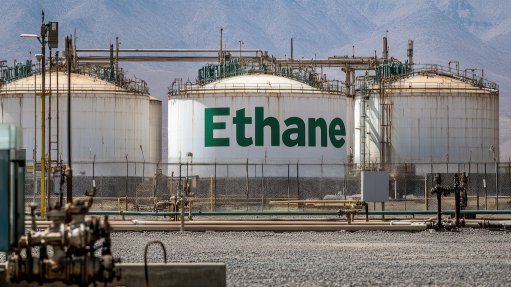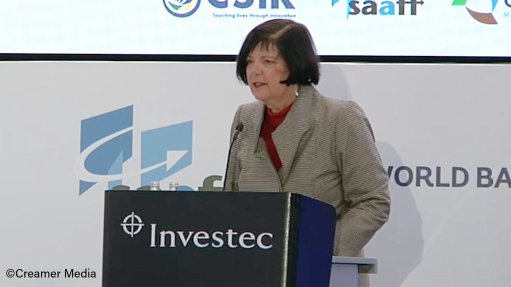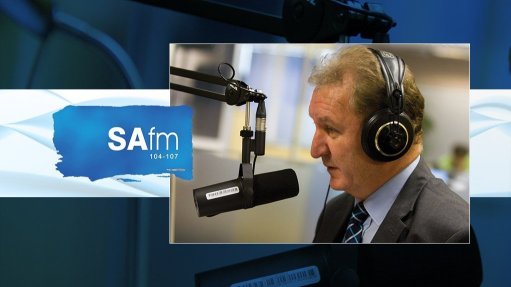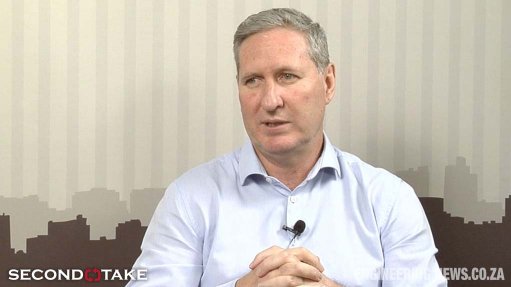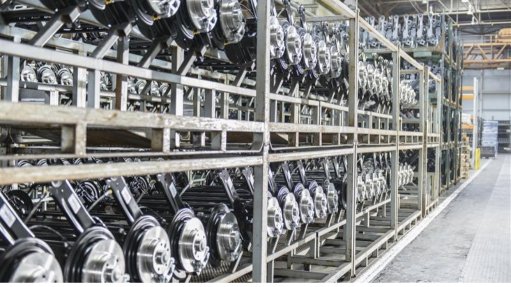Investing in returns, not in debt
Data from the JSE, released on May 18, revealed that, since the beginning of the year, investors had sold R493-billion worth of South African bonds and bought bonds valued at R485-billion.
It is worth mentioning that bonds are a debt instrument. For the week ending May 18, investors disposed of R5.2-billion in bonds. Apparently assuming that many people are not familiar with ‘government bonds’, the JSE reminds that “government entities issue bonds and list them on the JSE debt board to raise funds for large capital projects, such as roads, power stations and hospitals”. More than R1-trillion in bonds is listed on the JSE’s debt board. When last did you hear of the figure of R1-trillion being mentioned, while the actual figure is R1.2-trillion? I will return to that.
Although investors have evidently lost their appetite for acquiring South African debt, they have remained net buyers of South African stock, to the tune of R20.8-billion, for the year to date. Just to be clear, when you buy the shares of a company, you essentially acquire a piece of that company.
So, investors are willing to invest in South African companies, but not in government debt. The country is already in a precarious position, where, if credit agencies further downgrade it, institutional investors will be forced to sell South African bonds. It is estimated that as much as 36% of South Africa’s local currency debt of R22.1-trillion is in the hands of foreign investors.
The R1.2-trillion mentioned earlier is, of course, the investment amount that President Cyril Ramaphosa hopes South Africa will be able to attract over the next five years. What you might have missed is that 40% of the envisaged amount, or R519-billion, is earmarked for South Africa’s infamous State-owned enterprises (SOEs). Just how to attract this investment is the trillion-rand question.
It is inconceivable that investors will be inclined to invest in SOEs if their investments are not underwritten or guaranteed by government in one form or another. Considering the return-to-risk ratio, one could argue that more sensible investment choices would be found on the South African stock market – and why not in companies operating in the South African manufacturing sector?
If anything is long overdue, it is investment in the South African manufacturing sector, and not the mining sector, which is experiencing its very own Arab Spring – its economic liberation, that is. Central in this quest should be an institution that transcends South Africa’s borders and has direct control of the tariff and trade policy of Botswana, Lesotho, Namibia and Swaziland, the BLNS countries. The International Trade Administration Commission (Itac) is an institution steeped in tradition, and this has seen it evolve in name only, and not in terms of the way it operates, over the years.
In a world dictated to by tariff as well as nontariff measures and their application, Itac has not evolved; it is essentially a Walking Dead Institution, which, in true horror style, infects industry instead of facilitating growth and prosperity.
If the intention is to attract investment to South Africa that will trickle down to the entire economy, with the benefits including the creation of employment for South Africans and internationally competitive products, then we need an institution that can act fast and effect real change. Itac is anything but. Its methods and processes for conducting tariff investigations, and the manner in which it implements trade remedies, have, in my experience, not evolved in any meaningful way since the time I embarked on my career, which was a long time ago.
If the intention is to attract real investment to the South African manufacturing sector, then Itac should not be allowed to continue in its present form; it needs to be reformed, and reformed urgently. The commission must be instrumental in creating an environment in which investors could and would be willing to invest – where the investment will be able to deliver returns.
Comments
Press Office
Announcements
What's On
Subscribe to improve your user experience...
Option 1 (equivalent of R125 a month):
Receive a weekly copy of Creamer Media's Engineering News & Mining Weekly magazine
(print copy for those in South Africa and e-magazine for those outside of South Africa)
Receive daily email newsletters
Access to full search results
Access archive of magazine back copies
Access to Projects in Progress
Access to ONE Research Report of your choice in PDF format
Option 2 (equivalent of R375 a month):
All benefits from Option 1
PLUS
Access to Creamer Media's Research Channel Africa for ALL Research Reports, in PDF format, on various industrial and mining sectors
including Electricity; Water; Energy Transition; Hydrogen; Roads, Rail and Ports; Coal; Gold; Platinum; Battery Metals; etc.
Already a subscriber?
Forgotten your password?
Receive weekly copy of Creamer Media's Engineering News & Mining Weekly magazine (print copy for those in South Africa and e-magazine for those outside of South Africa)
➕
Recieve daily email newsletters
➕
Access to full search results
➕
Access archive of magazine back copies
➕
Access to Projects in Progress
➕
Access to ONE Research Report of your choice in PDF format
RESEARCH CHANNEL AFRICA
R4500 (equivalent of R375 a month)
SUBSCRIBEAll benefits from Option 1
➕
Access to Creamer Media's Research Channel Africa for ALL Research Reports on various industrial and mining sectors, in PDF format, including on:
Electricity
➕
Water
➕
Energy Transition
➕
Hydrogen
➕
Roads, Rail and Ports
➕
Coal
➕
Gold
➕
Platinum
➕
Battery Metals
➕
etc.
Receive all benefits from Option 1 or Option 2 delivered to numerous people at your company
➕
Multiple User names and Passwords for simultaneous log-ins
➕
Intranet integration access to all in your organisation







